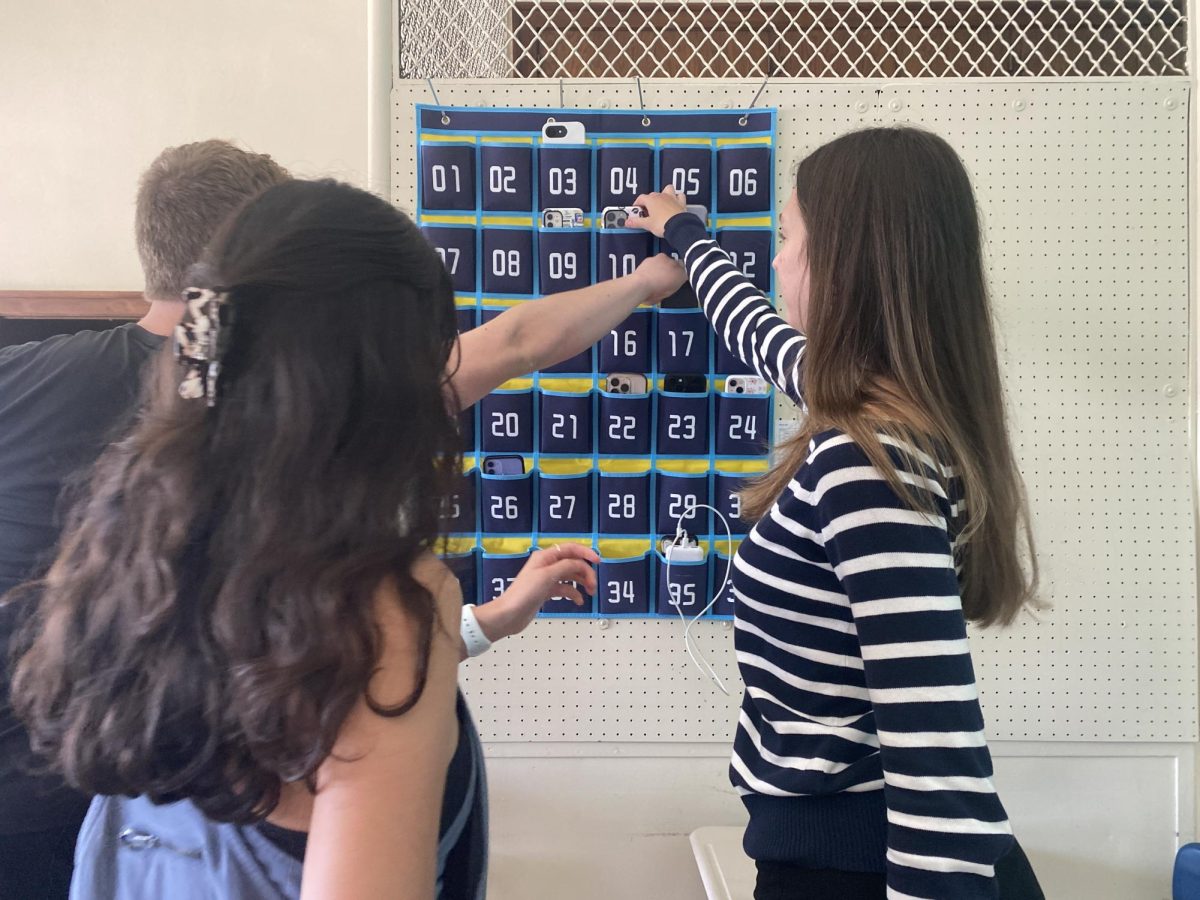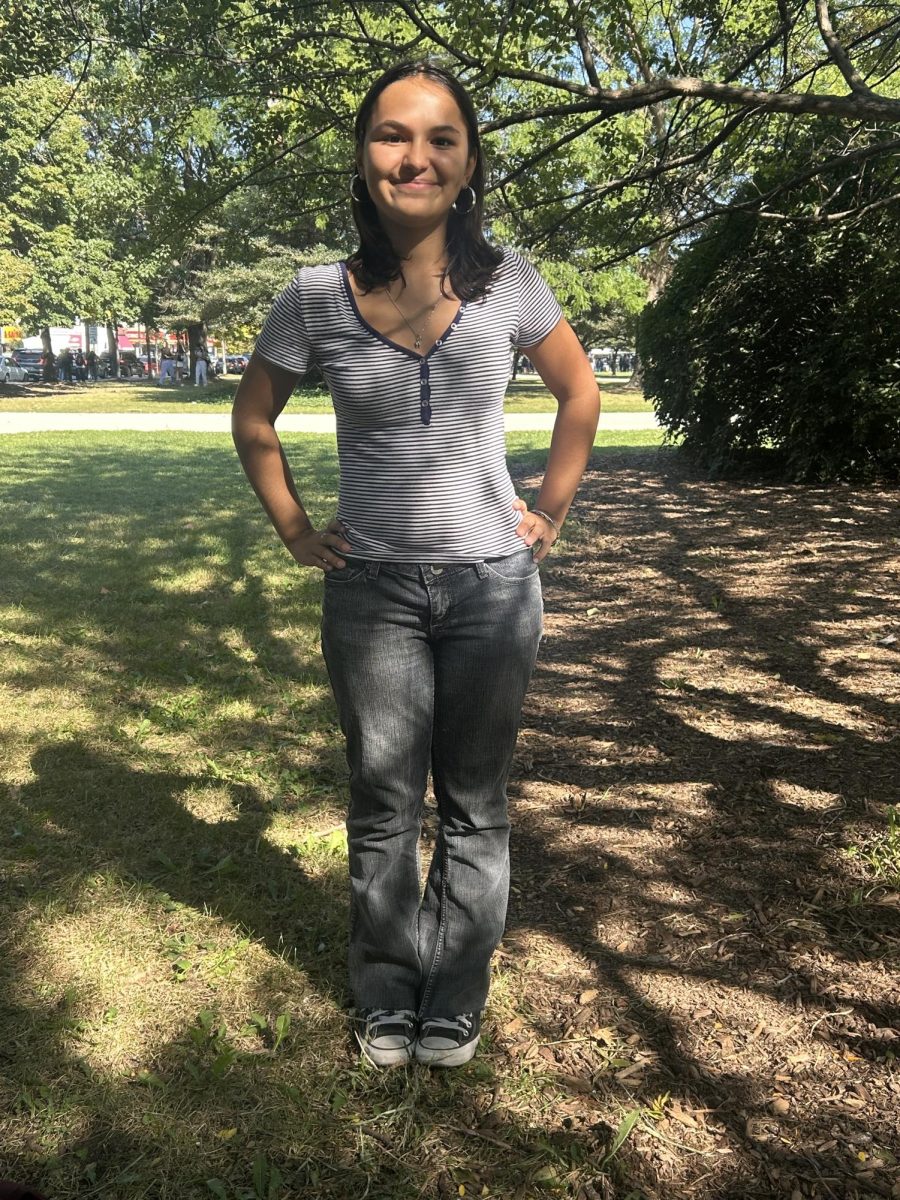October is a busy month for many at Lane. With clubs starting, Quarter 1 grades, and the full course load for the semester, students have a lot on their plate. With the presidential election right around the corner, many seniors have one more thing to worry about: casting their first vote.
This year, there has been a shift in the amount of political engagement, according to AP Government and Politics teacher, Timothy Hopps.
“Among my Gov students, students are way more engaged in the issues that are driving the campaign,” Hopps said. “I see more students participating in extracurricular clubs that are dealing with political issues. They’re coming to class with more knowledge about what issues are at stake, and with more energy about their opinions.”
Teachers usually encourage students to sign up to vote and become election judges, but according to Hopps, this year students have beaten them to the punch.
“Being election judges is another thing that in the past I’ve sort of had to pull teeth to get some students to sign up for it,” Hopps said. “But when I brought it up the other day, a whole bunch of students are already signed up.”
Some of this political excitement has roots in the preparations seniors are making for their shift into college. According to senior Margot Avery, many are thinking of this election in terms of how it will shape their futures after graduation, especially in the realm of the economy, a topic that is being considered more now that seniors are entering the workforce and starting to become more financially independent.
“I guess I feel like presidential elections are always more exciting,” said Avery. “It gives seniors and students the opportunity to get excited about politics.”
While impending graduation may drive some of the excitement, social media seems to take care of the rest. With many people getting much of their news from social media platforms, campaign information ends up where people are already located, so they don’t feel the need to go to outside sources, according to Avery.
However, campaign information is not the only thing being spread around social media during the election season. Large amounts of jokes and memes are being created from campaign quotes with content ranging from coconut trees to windmill on whale violence.
“I think in terms of young people, [jokes] make politics seem a lot more approachable,” Avery said. The way that the Harris campaign embraced the memes and funny moments, makes her seem more human, Avery said. “It allows people to engage without it always being super serious.”
With this volume of political jokes and information being spread on the internet, political conversations often become hostile.
“I think it’s very easy to feel very strongly about something, and when someone disagrees with you on that, it can be very easy to try to shut them out and not want to speak to them anymore, but that’s going to cause a lot more divide,” Scurtu said. “I think genuinely trying to understand where someone’s coming from, no matter how far-fetched an idea might be, is going to be 10 times more useful in trying to either change their opinion or just see why they think the way they think so.”




